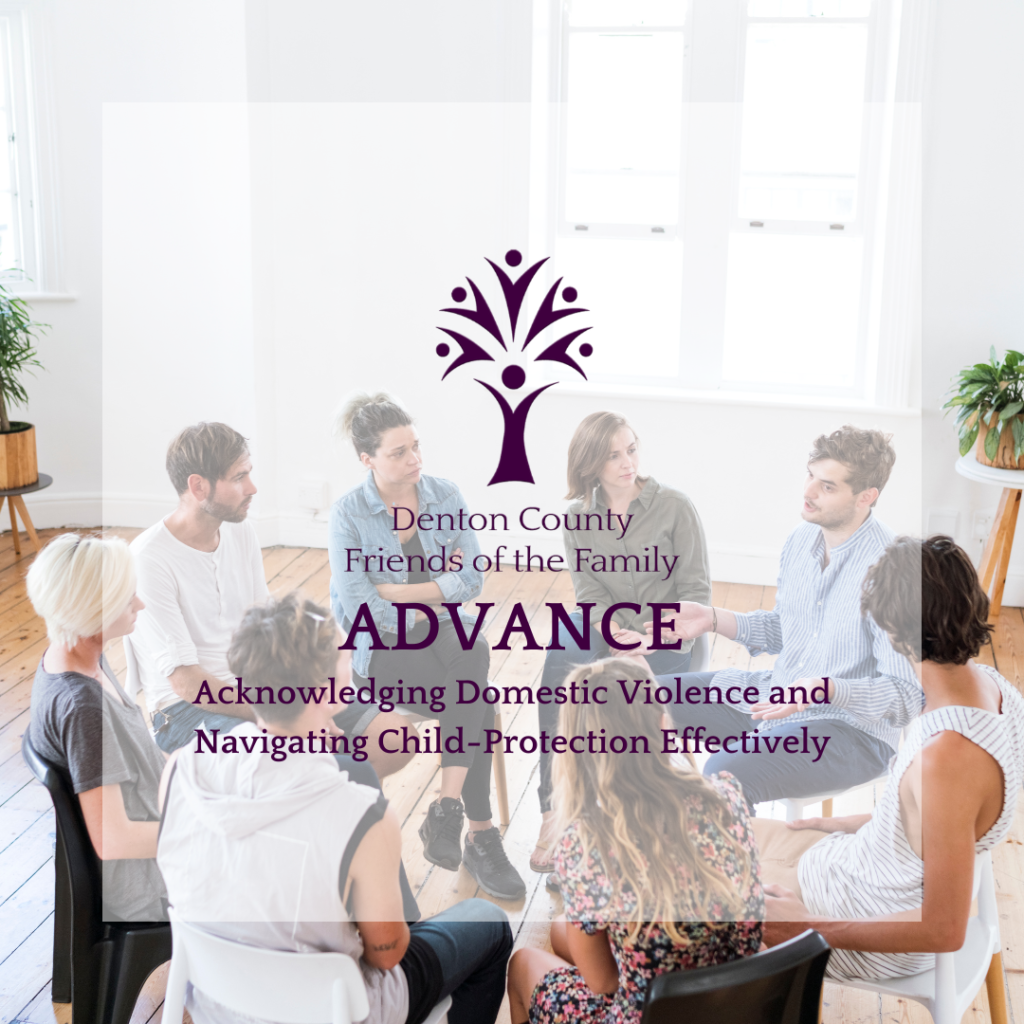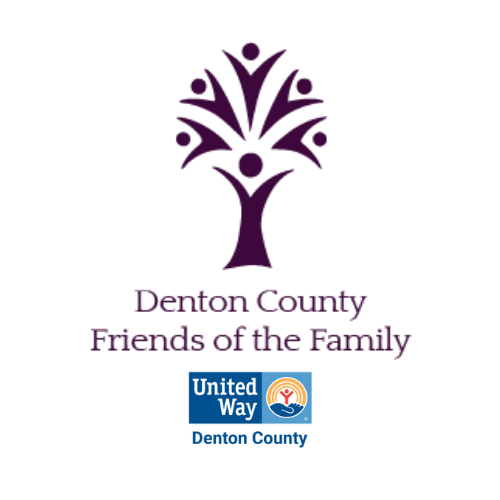CPI & CPS DV Intervention Class Referrals
This page is intended only for CPI and CPS caseworkers whose cases fall within the intersection of Domestic Violence and Child Abuse and Neglect. For the purpose of these referrals, Domestic Violence is defined as a pattern of behaviors one parent intentionally uses to gain and maintain power and control over the victimized parent.
If you have any questions or need a consultation prior to making a referral, contact Sarah Lehman at slehman@dcfof.org

ADVANCE
ADVANCE is a program appropriate for parents whom TDFPS believes have been or are currently the victim of Domestic Violence, even if the parent is not currently identifying as a victim. ADVANCE is an 8-week psycho-educational parenting class, which includes Orientation and weekly class topics and access to High Risk Advocates. ADVANCE was created to refer victimized parents impacted by a Domestic Violence perpetrator to learn how to parent through Domestic Violence, as well as their rights and their options in their control. A parent does not have to complete an Intake appointment or access other services at DCFOF to participate in ADVANCE.

Adult BIPP
BIPP is a program to help people who are abusive or become violent in intimate relationships learn to make better choices, end their abusive behaviors, and become accountable for their choices. We have two class options available depending on if you are referring a client as a 2054 form referral (18-group sessions) or without a 2054 (27-group sessions and self-pay). All specialized CPS referral /BIPP groups are only available via Telehealth.
Please note recent updates to the Service Code entries as all BIPP services are offered only via Telehealth. A 2054 form allows clients with limited financial means, to still have access to BIPP at no cost. Referral to the 2054 BIPP begins with an initial Domestic Violence Assessment (1 unit – 91K) and is followed by enrollment into a 18-week BIPP Group (36 units – 91L). The group facilitator will forward a Monthly Progress Report (MPR) to CPS noting the participant’s progress in the program. Please contact us at bipp@dcfof.org for more information or to request guidance for a client who has limited technology or connectivity capacity to participate via Telehealth.

Adolescent Non-Violence Program
ANVP is a 12-week program to help kids and teens ages 11 to 17 who have engaged in abusive behavior toward family members or in dating relationships. It is trauma-informed, psychoeducational, and cognitive-behavioral based. We cover topics such as conflict resolution, accountability, communication skills, dating violence, and processing emotions. Parent/guardian consults are conducted regularly while the child is in the program and family sessions are available upon request. The ANVP Counselor will provide Weekly Group Notes to CPS noting the child’s progress in the program.
TIPS BEFORE YOU MAKE A REFERRAL
- Tell the victimized parent that DCFOF will call them from a blocked/unknown number, ask them to empty their voicemail box, and to regularly check their email (inbox AND junk/spam folder) for contact from our office.
- Talk with the victimized parent about creating a Domestic Violence safety plan.
- Hold the parent using Domestic Violence accountable with your wording in referrals.
2054 REFERRAL
DCFOF has a contract with the Texas Department of Family and Protective Services to provide a customized program through form 2054! This allows clients with limited financial means to access the great benefits that a battering intervention program can provide. Unlike our Traditional BIPP Services, this program is at no cost to the client. Referral to the 2054 BIPP begins with an initial Domestic Violence Assessment (1 unit – 91K) and is followed by enrollment into a 18-week BIPP Group (36 units – 91L) covering the topics of: Responsible Parenting, Fatherhood, Nonthreating/Nonviolence, Respect, Trust and Support, Honesty and Accountability, Partnership, Sexual Respect, Impact of DV on Children, and Lisa 911 discussion. The group facilitator will forward a Monthly Treatment Report (MTR) to CPS noting the participant’s progress in the program.
